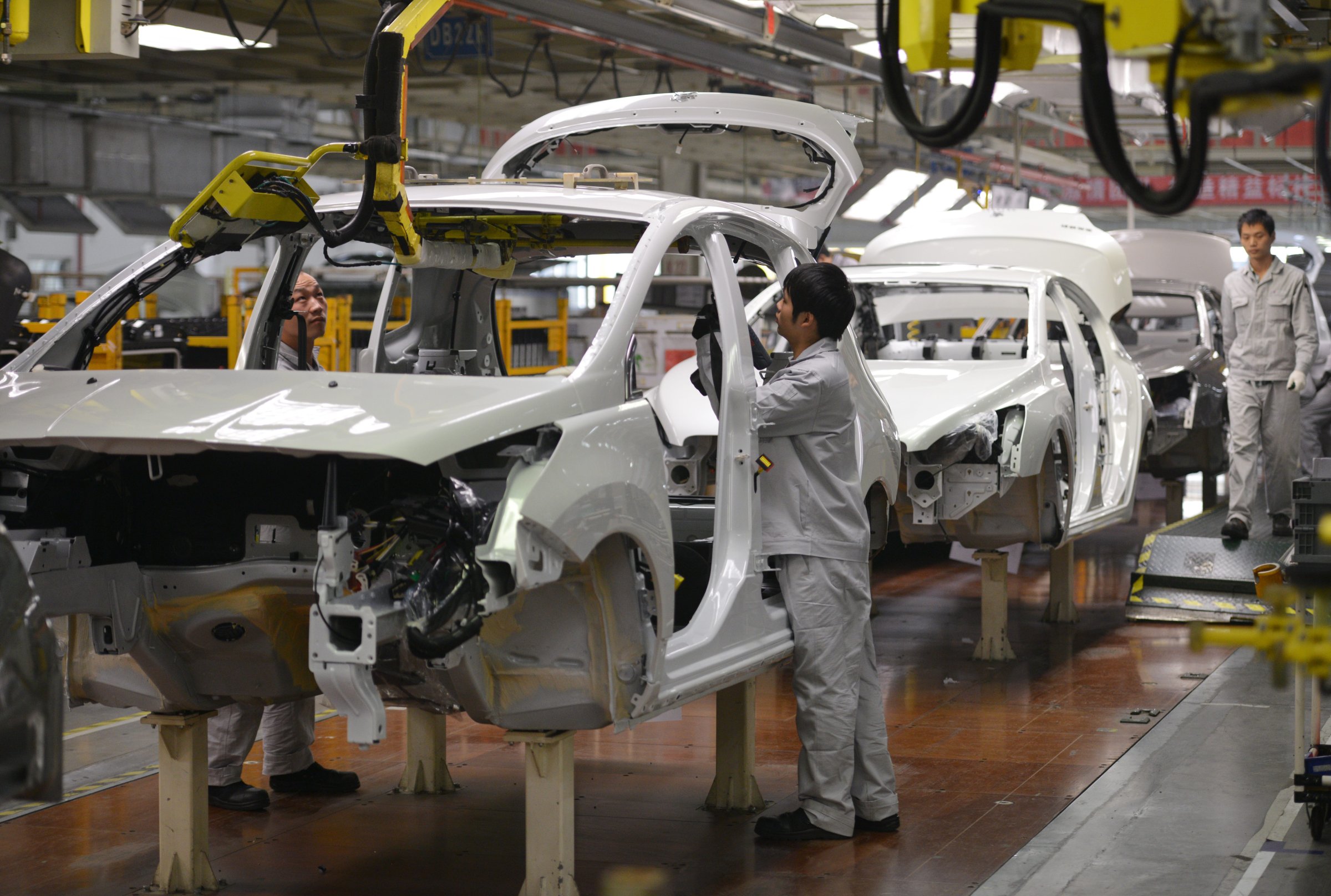
China has had dreams of turning Shanghai into a 21st-century Detroit – no, not a bankrupt basket case, but a major center for the global automobile industry. But those hopes have been dashed. Though China is the world’s largest car market, and Chinese have become avid drivers (as you can read in my latest TIME magazine story), the nation’s automobile manufacturers have struggled to catch up with their international rivals.
Generally lacking technology, experience and brand power, Chinese carmakers have faced hurdles even competing in their home market, where Chinese consumers think homegrown cars are of poor quality. As a result, foreign brands like Volkswagen, Buick and Hyundai, command 70% of the Chinese market, Overseas, Chinese cars tend to get exported to other developing countries where shoppers care more about price than nameplate.
What to do? Chinese car companies appear to be trying to buy the technology, know-how and market presence they have struggled to develop on their own. Recently, the global auto industry has seen a series of high-profile deals by Chinese car companies. In February, state-owned Dongfeng Motor agreed to invest some $1.1 billion in troubled automaker Peugeot-Citroen, as part of a rescue package that includes the French government. A few days earlier, Chinese car parts maker Wanxiang won an auction for the assets of Fisker Automotive, a bankrupt U.S. manufacturer of hybrid sports cars. (Last year, Wanxiang also completed the acquisition of most of bankrupt U.S. battery maker A123 Systems.) Then, earlier this month, a unit of China’s FAW inked a joint venture with Michigan-based EcoMotors, a start-up backed by Bill Gates, to manufacture the latter’s environmentally friendly engines. The FAW subsidiary is picking up the entire bill for the Chinese facility, an investment of more than $200 million.
These latest deals follow in the footsteps of the granddaddy of Chinese auto acquisitions: In 2010, private Chinese carmaker Geely bought storied Swedish firm Volvo from Ford. Recently, the two said they were expanding cooperation to develop a new subcompact model.
What’s happening here is that China’s carmakers, with ample access to financing, are using their money muscle to buy technology, market share and access to new product lines that would have been difficult and time-consuming to develop on their own. (In this way, the auto deals are similar to those recently announced by Chinese PC maker Lenovo for Motorola’s handset business from Google and IBM’s low-end servers.) That’s why China’s asset grabs have led some critics to fret that the West is handing Chinese automaker critical know-how that will help them compete with heavyweights like GM and Ford, or even worse, can be used in military applications. After Wanxiang’s purchase of A123 was approved by a U.S. government panel, one senator complained that such technology developed in America “should not simply be shipped off to China.”
Yet as the old saying goes, beggars can’t be choosers. The Chinese (for the most part) are investing in companies or buying assets that have a very troubled history. It is an open question if France’s loss-making Peugeot, for instance, could even survive without a fresh capital injection. Chinese firms like Dongfeng have the money to save the day. Buying assets, however, is much different from using them wisely. It remains to be seen if these Chinese companies can capitalize on their purchases to turn themselves into better auto companies, or if they are capable of helping to turn around their troubled new investments. China’s car industry may find that cash can buy you stuff, but not easy shortcuts.
More Must-Reads From TIME
- The 100 Most Influential People of 2024
- The Revolution of Yulia Navalnaya
- 6 Compliments That Land Every Time
- Stop Looking for Your Forever Home
- If You're Dating Right Now , You're Brave: Column
- The AI That Could Heal a Divided Internet
- Fallout Is a Brilliant Model for the Future of Video Game Adaptations
- Want Weekly Recs on What to Watch, Read, and More? Sign Up for Worth Your Time
Contact us at letters@time.com